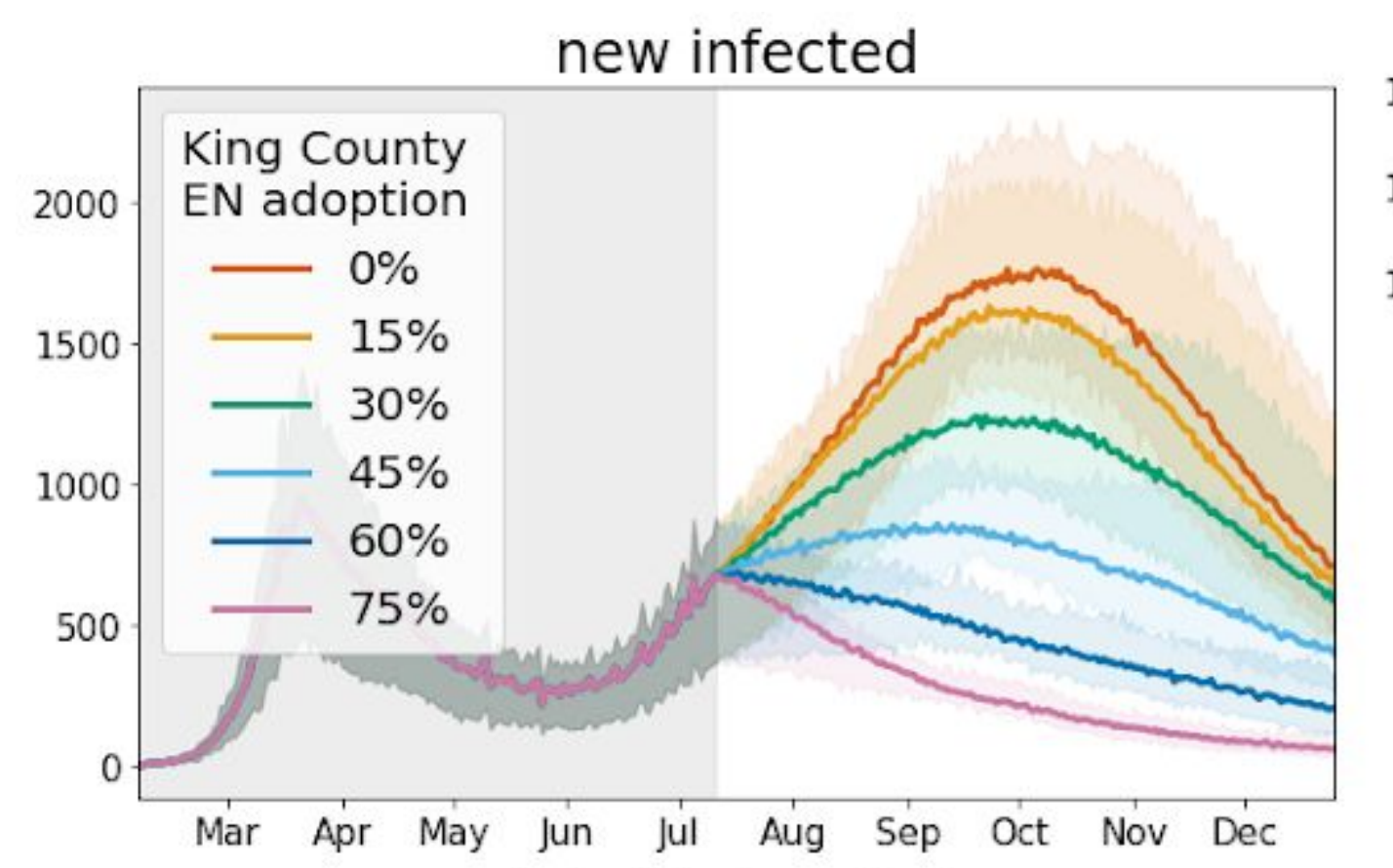Hereccs a life-or-death question: Do apps that notify people of potential exposure to the coronavirus help save lives, or are they a waste of precious time and money?
A new study from Oxford University and Google says contact tracing apps reduce infections, hospitalizations, and deaths at almost any level of adoption, showing that the technology can act as a complement to other countermeasures like social distancing and manual contact tracing.
“The key message from the study is that digital contact tracing is part of an intervention package,” says study coauthor Rob Hinch, a senior researcher at Oxford’s Nuffield Department of Medicine. “Even at low uptake, it can make significant contributions. It’s important to see it as a key pillar of a larger intervention package.”

Adoption of digital contact tracing and exposure notification is becoming a lot easier: Apple and Google recently announced that health agencies can use their iPhone and Android coronavirus technology without creating specific apps. iPhone users need only to tap the screen to join the effort, and Android automatically generates apps, a shift that is meant to drive adoption higher–and a goal that Oxford researchers say can have a meaningful impact on coronavirus infection rates. The Oxford study has not yet been peer reviewed.
Armed with months of new pandemic data as well as a better understanding of Apple and Google’s Exposure Notification System, the researchers modeled three counties in Washington state. They ran simulations to estimate the impact if digital exposure notification tools were adopted by anywhere from a 15% of the population to 75%–which would mean that effectively all smartphone users were using the system.
The models showed that if 75% of people used an app, it could help reduce deaths by up to 78% and infections by 81%. But even a 15% adoption rate can mean 11.8% fewer deaths and 15% fewer infections. Over the course of the 300-day model, this represented thousands of lives saved.
The authors hope that the models can bring some clarity to the role of technology in fighting the pandemic. In the 10 months since covid-19 first appeared, there have been dozens of technological solutions proposed to fight the disease, but very little understanding of how–or even if–any of the novel approaches could work.


